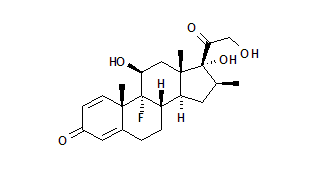HAPUNA BEACH, HAWAII -- Foam isn't just for the scalp anymore. The fluffy stuff appears to greatly improve psoriasis on elbows, knees, and torsos, too.
Twice-daily applications of betamethasone valerate foam 0.12% produced a 50% or greater improvement of body psoriasis in 26 of 37 patients enrolled in a 12-week study, Dr. Linda Stein reported at the annual Hawaii dermatology seminar sponsored by the Skin Disease Education Foundation.
Just 9 of 37 patients demonstrated similar improvement when they used a foam containing only vehicle in the randomized, double-blind, split-body study.
Betamethasone valerate, a midpotency steroid, was approved in 1999 for treatment of corticosteroid-responsive dermatoses of the scalp. It maintains its shape at room temperature but breaks down quickly when it is applied to the skin, leaving no appreciable residue.
"Because the foam is cosmetically elegant and doesn't get on people's clothing, we think it could improve compliance," said Dr. Stein, associate director of clinical research in the department of dermatology at Henry Ford Health Systems in Detroit. "It also simplifies the regimen to use the same medication on the scalp and on the body."
Foams also demonstrate enhanced bioavailability over other formulations, she said during the seminar, also sponsored by the Cleveland Clinic Foundation.
To test the usefulness of foam on non-scalp psoriasis, she directed a two-center study of 40 patients with symmetrical psoriatic lesions on the trunk, upper and/or lower extremities, and elbows and/or knees.
Patients were randomly assigned to apply the betamethasone valerate foam or a placebo foam on the right or left sides of their bodies twice a day. Erythema, scaling, plaque thickness, and pruritus were evaluated at each body site at the end of 2, 4, 8, and 12 weeks of treatment.
Investigators unaware of which side received active medication completed a global assessment of response for each side of each patient.
Thirty-seven patients completed the study.
Overall, investigators determined that 70% of patients had at least 50% improvement at sites treated with betamethasone valerate foam. At sites treated with placebo, 24% of patients showed the same level of improvement.
On the elbows, patients' composite severity score dropped from an average 7.0 (on a 10-point scale) to 4.0 on the elbow that received betamethasone valerate, versus 6.3 on the elbow that received only a placebo foam.
Dr. Stein's study was sponsored by Connetics Corp., Palo Alto, Calif., which markets betamethasone valerate foam under the trade name Luxiq.
COPYRIGHT 2000 International Medical News Group
COPYRIGHT 2001 Gale Group



